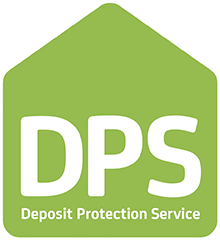Buying a property is likely to be one of the biggest financial transactions that you make. It can be a exciting but equally can come with stress and worry.
After finding a home you like, the process from having your offer accepted to completion of your purchase takes on average, about 12 weeks. Home buying in Britain can be a notoriously drawn-out business but quick sales/purchases can be achieved.
As the selling agent we act for the vendor, but it is in the interest of all parties for us to make your home-buying experience as easy and problem-free as possible.
Start out by knowing exactly what you can afford and where your funds will come from. In today's market conditions, vendors require and agents have a duty to establish the purchasing ability of the buyer.
If you require a mortgage, you are likely to be asked to produce a certificate to show a mortgage has been agreed in principle with a lender.
If you are a first-time buyer, proof of a deposit may be required.
If you have a house to sell, you need to know it's value to establish the equity available for your next purchase. Expect to be asked whether you have had it valued, whether it is on the market and if it is, for how long and what interest you have had from buyers?
If you are not yet on the market, why not request a free valuation now?
If you are a cash buyer (do not require a mortgage and have nothing to sell), you may be asked to provide proof that the funds are available for your proposed purchase.
So, at the outset, where appropriate, see a mortgage advisor. Not every Bank and Building Society offer matching products and terms. Shopping around can save £££'s. An Independent Mortgage Advisor will look at many mortgage products for you. If you would like to discuss your mortgage requirements with a Financial Advisor, request an appointment here.
First time buyers often struggle with the ever-rising cost of housing and current mortgage availability. As a result, many seek other means to get on the property ladder. Buying with your friends or family are two popular options but you could also consider a shared ownership scheme. Many of these homes are new builds, with initial shares starting from around 25%, and have the eventual option of owning the whole property. As agents, Page & Wells frequently offer properties with shared equity arrangements, usually as New Homes. Different housing authorities have different criteria for who can participate in shared-ownership schemes. To find out if you are eligible, take a look at the Communities and Local Government website.
You’ve seen that perfect “roses round the door” property on the internet but is it really perfect for you? It’s worth sitting down and preparing a tick box list of what you want from your new home and what your needs are.
All too often buyers, anxious to get started, consider only the locality they like without thought for their other requirements.
You will save a lot of your time and that of the sellers and their agents if you give consideration to things such as the whereabouts of:
Other questions buyers often forget to consider between viewing properties and negotiating a purchase are:
Ask sufficient questions of the selling agent to help satisfy any queries you may have and then put in an offer.
Agents often ask a set price for their client's property but sometimes that price may be qualified by words such as "Guide Price", "Offers in Excess Of” (0.I.E.O.) or "Offers in the Region Of” (0.I.R.O.).
Depending on your personal views about the property, you may choose to offer the asking price in full or perhaps offer above or below. If you offer the full asking price, it signifies your intent - serious haggling gives off other vibes and gives time for another purchaser to move in.
Don't lose out on that dream property or rare opportunity for the sake of a few pounds.
Having had your offer accepted you may well find yourself in a chain.
Nationally, on average one in three property chains experience a break. This can result from one party not having their finances in order or an unpleasant surprise in the survey or legal documents.
A chain progressing smoothly is usually the result of good communication and good Agents and Solicitors who stay in regular contact help are instrumental to speed things along.
It can also help to stay flexible. Nothing upsets a chain more than one party trying to dictate everyone else's plans.
If you can move in with your family or rent as a short-term measure, it can be a useful contribution to keeping the chain going.
If you require a mortgage to fund your purchase, both you and your mortgage lender need reassurance that the property is worth the amount of money you have agreed to pay for it. All lenders require a basic valuation, but in addition you may be advised to have an independent, more detailed survey carried out as the basic valuation will only show up any obvious problems that you will probably have noticed yourself.
As well as what is known as the basic mortgage valuation, there are other types of survey:
The level of survey you need depends a lot on the individual property you are buying. Naturally, they differ in cost but a saving may be achieved if the surveyor conducting the mortgage valuation is able to undertake the more detailed report from the same inspection.
A conveyance is normally carried out by a firm of solicitors, conveyancers or a specialist online conveyancing company. Some provide online tracking and reporting and others adopt the more traditional approach. A good Solicitor, like a good Estate Agent can be worth their weight in gold. Page & Wells can put you in touch with good local solicitors and obtain estimates on your behalf.
Your solicitor will normally also act for the Bank or Building Society who are providing the mortgage.




